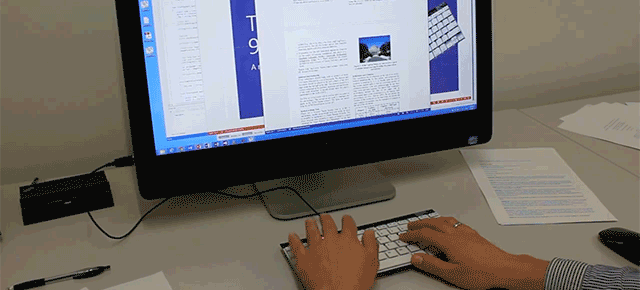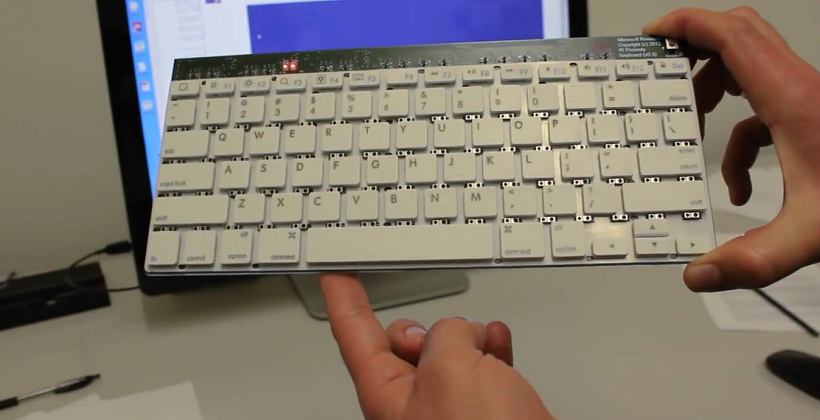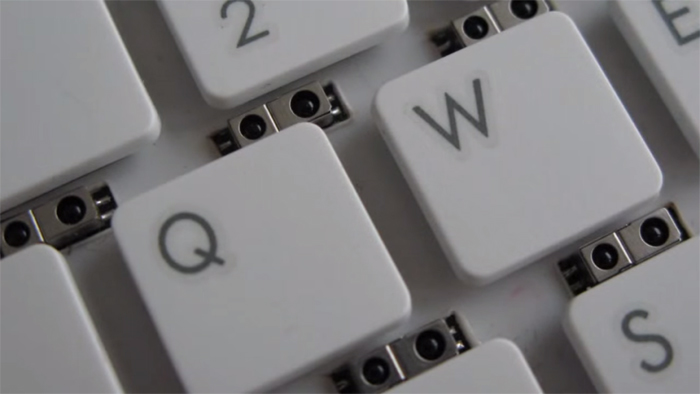[VIDEO] Microsoft Reveals A Gesture-Sensing PC Keyboard
The prototype keyboard, which looks like a regular thin keyboard, supports gestures like swipe and pinch-to-zoom to navigate documents.
Microsoft Is Experimenting With Ways To Combine Trackpad Gestures On Traditional PC Keyboards
Microsoft Research has shown off its latest work in the motion-control category: the Type-Hover-Swipe mechanical keyboard.
slashgear.comThe prototype combines an Apple keyboard with an array of infrared proximity sensors that are mounted above the key caps. No external sensors are required, and the end result is something similar to Leap Motion.
The Prototype Keyboard Is Constructed With A 16 x 4 Grid Of 64 Low-Res Infrared Proximity Sensors
To achieve this, it uses a 16 x 4 grid of 64 low-resolution infrared proximity sensors. These are embedded in the base of the keyboard, between the keys, which are spaced a little wider to allow them room. These sense both the proximity and the motion of the hands above the keyboard.
Although The Sensors Are Low-Res, It Has A Frame Rate Above 300 Hertz, Which Means It Can Track Rapid Movement With Ease
A set of gesture recognition algorithms are able to recognise what Microsoft Research calls "motion signatures" — programmed gesture presets based on motion history data that allow the keyboard to recognise specific gestures as commands.
These include swiping a hand across the keyboard to navigate, making a pinching gesture to zoom, drawing a simple line with an index finger to switch between applications and even holding two fists above the keyboard to simulate a driving motion for a game.
slashgear.comWhat Microsoft Is Seeking To Solve With The New Prototype Keyboard Is That It Allows You To Maintain The Comfortable Position You're Accustomed To
Most people are used to having their hands on keyboard and mouse, resting on the desk, rather than hovering somewhere 30 centimetres above it. This is what Microsoft Research is seeking to solve with Type-Hover-Swipe in 96 Bytes. The core of the hardware is a mechanical keyboard, but it integrates motion control. Moreover, it does so in such a way that the user's hands never really need to be more than a centimetre or two above the keyboard, meaning you can maintain the comfortable position you're accustomed to.
While there are many new and emerging ways to interact with PCs, Microsoft’s system looks like it could be one of the more natural and easy to use, a way to compliment an existing mouse instead of replacing it. Simple gestures like swiping down on keyboard keys navigates a page downwards, and there’s even support for gestures when you hover above the keyboard.
Although The Prototype Is Simply Research For Now, It’s Not Impossible To Imagine Microsoft Manufacturing A Keyboard That’s Capable Of This Gesture Support
The research paper was presented at the ACM CHI Conference on Human Factors in Computing Systems 2014 in Toronto. Microsoft has made no mention of bringing the keyboard to production — but it looks like the most intuitive integration of motion control we've seen to date.



